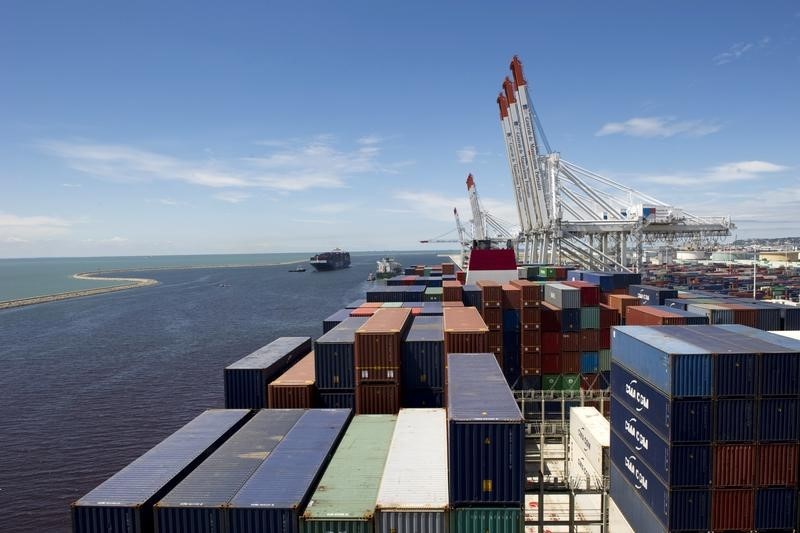OTTAWA, May 2 (Reuters) - Strong commodity prices mean the value of Canadian goods exports will jump 6 percent in 2017 after a drop last year, Canada's export credit agency said on Tuesday, playing down possible disruption to the North American Free Trade Agreement (NAFTA).
In its semi-annual forecast, Export Development Canada predicted exporters should benefit this year from a stronger U.S. economy and a weak Canadian dollar. Canada sends 75 percent of all goods exports to the United States.
Those exports shrank by 2.6 percent in 2016, pulled down in part by lower prices for a wide range of goods, including a 17.1 percent drop in energy.
"A main driver of export growth this year will be energy, with exports growing by an incredible 18 percent after a very weak 2016," said the forecast.
Overall services exports should increase by 5 percent, slightly more than the 4.8 percent advance seen in 2016.
Canada's export sector could be hit hard if U.S. President Donald Trump carries out a threat to withdraw from the NAFTA pact with Canada and Mexico.
Washington last week slapped tariffs on Canadian lumber exports and expressed unhappiness with what it calls unfair trading practices by Canada's dairy farmers. Neither the dairy nor the lumber sectors are covered by NAFTA. Development Canada chief economist Peter Hall said he was not overly worried by the potential for major changes to NAFTA, saying that while the administration was focusing on individual sectors, he saw little evidence of a real sustained desire to harm the bilateral trading relationship.
"Any time there is (a suggestion) that is going for the architecture of trade, that would actually inflict a lot of pain not just on those it's aimed at but the domestic U.S. economy, there are repeated U-turns from those positions," he said.
One example was the debate in Washington over imposing border tariffs, he added.
Last week, Trump said he pulled back from killing the 23-year-old trade pact with Canada and Mexico after requests from the two countries' leaders and expressed optimism about winning better U.S. terms in a renegotiated deal.
